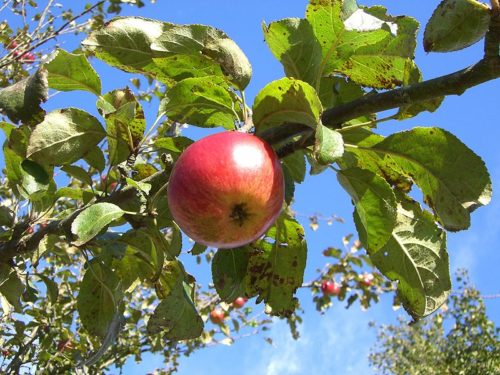
This past weekend, we finally burned a huge pile of tree branches and small trees that have been drying in our yard for months. The branches had been there since early spring; they took up a large chunk of our yard, got in our way, and were generally annoying. We’d tried burning them a month or two ago, but they were too wet; our efforts fizzled before we made any real progress. But today, after eight hours of burning, all the branches had been systematically put into our fire pit, and in another day, the ashes themselves had burnt themselves out, the merest fraction of what they once were.
The timing of our endeavor ended up being really good for us, too; the day after we burned them, late in the evening, it began to rain, with severe weather predicted for the next few days. Notwithstanding the difficulty of starting a fire in the rain, rain would have (obviously) affected the wood’s wetness, and we probably would have been set back weeks in our wood-clearing plans.
In today’s readings, the first line of the responsorial Psalm is Psalm 52:10: “I, like a green olive tree in the house of God, trust in the mercy of God forever and ever.” What struck me about that line is reflecting on what it means to be a “green olive tree.” Green means it’s healthy and well-watered . . . and those of us who trust in God generally find our souls continually well-nourished by His love and blessings.
Being likened to a tree is also an interesting idea for me. Trees have a definitive purpose, known and knowable even to our limited human eyes: They provide fruit, shade, building materials, oxygen, firewood to keep us warm or to cook, and many other purposes. But most individual trees probably don’t know their fates (notwithstanding the fact they don’t have minds, of course). How tall will they grow? How wild will they be permitted to expand? Will their fruit be sweet and delicious, or an inedible nuisance for those tending them? Two trees, genetically identical and planted in identical circumstances, will almost certainly look very different after a growing season or two.
To shift gears for a moment: Today’s Gospel selection from Luke is almost a “slice of life” vignette depicting what seems like a fairly standard day for Jesus. Within a few short passages — less than a day — he cures Simon’s mother-in-law, heals other sick people (driving out demons within many of them), went to a deserted place, and was discouraged from leaving by the crowds.
But within the corners of those small anecdotes, a slight pattern emerges. The demons he drove out shouted, “You are the Son of God,” but “he rebuked them and did not allow them to speak because they knew that he was the Christ.” In other words, Jesus knew that they knew the truth, but he didn’t want that truth revealed or expanded on at that time.
When Jesus was kept from leaving, he said, “To the other towns also I must proclaim the good news of the Kingdom of God, because for this purpose I have been sent.” Thus he recognized his own purpose, even if the townspeople didn’t.
In contrast, Simon’s mother-in-law waited on Jesus and his friends immediately after she was cured. There was no comment from Jesus about how she wasn’t supposed to be tending to them, so we can assume that Jesus approved of her efforts (since twice in the same passage he spoke against those who weren’t conforming to his plan).
So, putting all this together . . . When my wife and I started amassing branches and felled trees in our yard, we had an ultimate end goal: clear out trees that had to go, burn the material, and reclaim our yard. The specifics were something of a mystery to us; we had no clue when the exact date would be, how long it would take us, or how difficult the task would be.
Today’s first reading speaks of the truth of the Gospels, noting: “in the whole world it is bearing fruit and growing . . .” In our lives, we have a specific end goal as to how that fruit is growing within us: know God, love God, and serve God, so we can ultimately end up in Heaven. But — like a growing tree or my yard-clearing efforts — the specifics of how or when this will happen are largely a mystery to us. We can attempt to exert control over our circumstances (and, I’d argue, we should), but we should also be mindful that God may have other plans for us. The townspeople not wishing Jesus to leave may have had their hearts in the right place (they wanted to keep Jesus in their lives!), but that wasn’t in keeping with the Father’s plan. Simon’s mother felt a calling to serve Jesus immediately after being blessed, and she did so without dissuasion or comment.
Trees are active, in their own way. They grow constantly, they have a purpose, and that purpose is known and knowable. But specifics of how each tree does what it does is largely a mystery. The final fate of a tree can no more be discerned with absolute accuracy from its initial planting any more than our own plans and desires can be mapped out unerringly. We should feel a calling — like trees, growing ever upward toward Heaven — but we should be conscience of the fact that God may well guide our efforts, so as to better serve Him.
Today’s readings: Col 1:1-8; Ps 52:10-11; Lk 4:38-44
